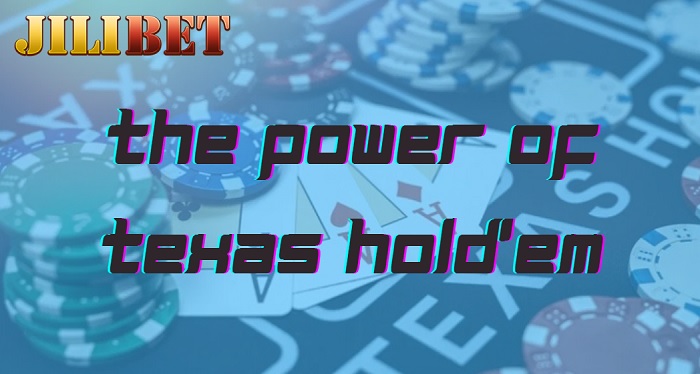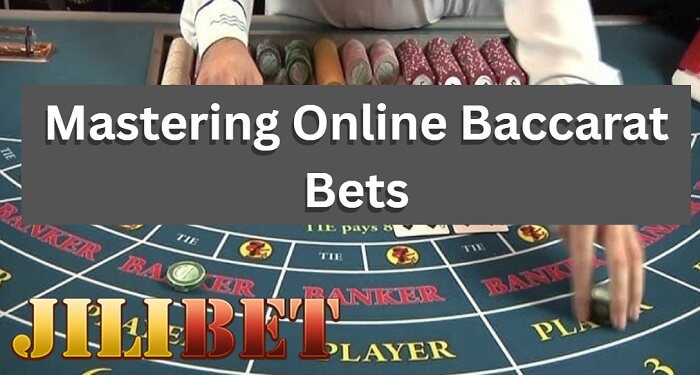Texas Hold’em is more than just a card game—it’s a mental battleground where psychology, mathematics, and strategy collide. For players on platforms like jilibet, this isn’t just about crossing your fingers and hoping for a good hand. It’s about reading opponents, calculating odds, and making razor-sharp decisions that separate the amateurs from the masters.
Whether you’re playing casually with friends or grinding through online tables, one truth remains: Texas Hold’em is a game of skill. And if you’re ready to test yours, it might just become your favorite way to challenge your mind and bankroll.
What Is Texas Hold’em?
Texas Hold’em is the most popular variant of poker worldwide. Each player is dealt two private cards (“hole cards”), and five community cards are revealed in stages (the flop, turn, and river). The goal? Make the best five-card hand possible using any combination of your hole cards and the community cards—or better yet, convince everyone else to fold before the showdown.

But here’s the twist: the strongest hand doesn’t always win. It’s often the boldest bluff or the cleverest call that secures the pot.
Why It’s a Game of Skill
Many people mistakenly group poker with games of chance. But experienced players know that Texas Hold’em is all about skillful decision-making. Here’s why:
Math Matters
From calculating pot odds to assessing hand probabilities, every action in Hold’em involves numbers. Knowing when to call, fold, or raise comes down to cold, hard math—not wishful thinking.
Reading Opponents
Paying attention to how your opponents bet, how quickly they act, and their betting history can give you insights into their hand strength. Spotting bluffs or identifying patterns separates winners from wishful thinkers.
Bluffing as a Weapon
One of the greatest tools in Texas Hold’em is the bluff. Executed well, it can force stronger hands to fold and win pots you had no business taking. But a poor bluff? That can burn your stack fast. Timing, table image, and confidence are key.
Position Play
Where you sit at the table influences your decisions. Late position gives you more information before you act—a strategic edge seasoned players leverage constantly.
You might be interested: Reads, Bluffs, and Bold Moves—This Is Hold’em, Baby
Key Skills Every Hold’em Player Needs
To become truly competitive at Texas Hold’em, you’ll need to develop and sharpen these essential skills:
- Discipline: Knowing when to fold and not chasing bad hands.
- Patience: Great hands don’t come often. Waiting pays off.
- Focus: Distractions can cost you. Every bet tells a story.
- Adaptability: Adjusting your style based on the table and opponents.
Online Texas Hold’em: How It’s Different
Playing online changes the dynamics slightly but also offers advantages:
- Faster gameplay: More hands per hour means more opportunities to win.
- Multi-tabling: Skilled players can play multiple tables at once.
- Digital tools: Track stats, use hand history, and study your results.
- Wider player pool: Face off against global opponents with diverse styles.
And even though you can’t physically read a poker face online, player patterns, timing tells, and bet sizing give you plenty of clues.
Building Your Strategy: Tips for Success
If you’re looking to elevate your Texas Hold’em game, keep these pro tips in mind:
- Start tight, play aggressively: Don’t enter pots with weak hands, and bet with confidence when you have strong ones.
- Pay attention: Observe every hand, even if you’re not in it. Learn from others’ actions.
- Don’t go on tilt: Emotion is your enemy. Stay cool, even after a bad beat.
- Always keep learning: The best players study the game constantly—through videos, books, and practice.
Final Thoughts: Are You Up for the Challenge?
Texas Hold’em is more than a game—it’s a skill-based competition that rewards logic, patience, and courage. Every hand is a new puzzle. Every opponent, a new mystery. Whether you’re trying to out-bluff a seasoned shark or slowly grind your way to the final table, the thrill never fades.
If you think you’ve got what it takes to outplay the competition, platforms like jilibet are where the action lives. So go ahead—shuffle up, ante in, and show the table what skill really looks like.
- Professional Online Baccarat Strategy: Practical Application of Data Logic and Bankroll Control - December 15, 2025
- Mastering Fishing Games: How the Bullet Attrition Rate Model Helps You Identify the Most Cost-Efficient Targets - December 12, 2025
- Online Casino Risk Models Explained: How Platforms Use Fraud Detection Algorithms to Identify Advantage Players - December 10, 2025


